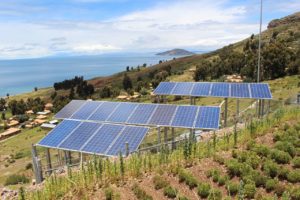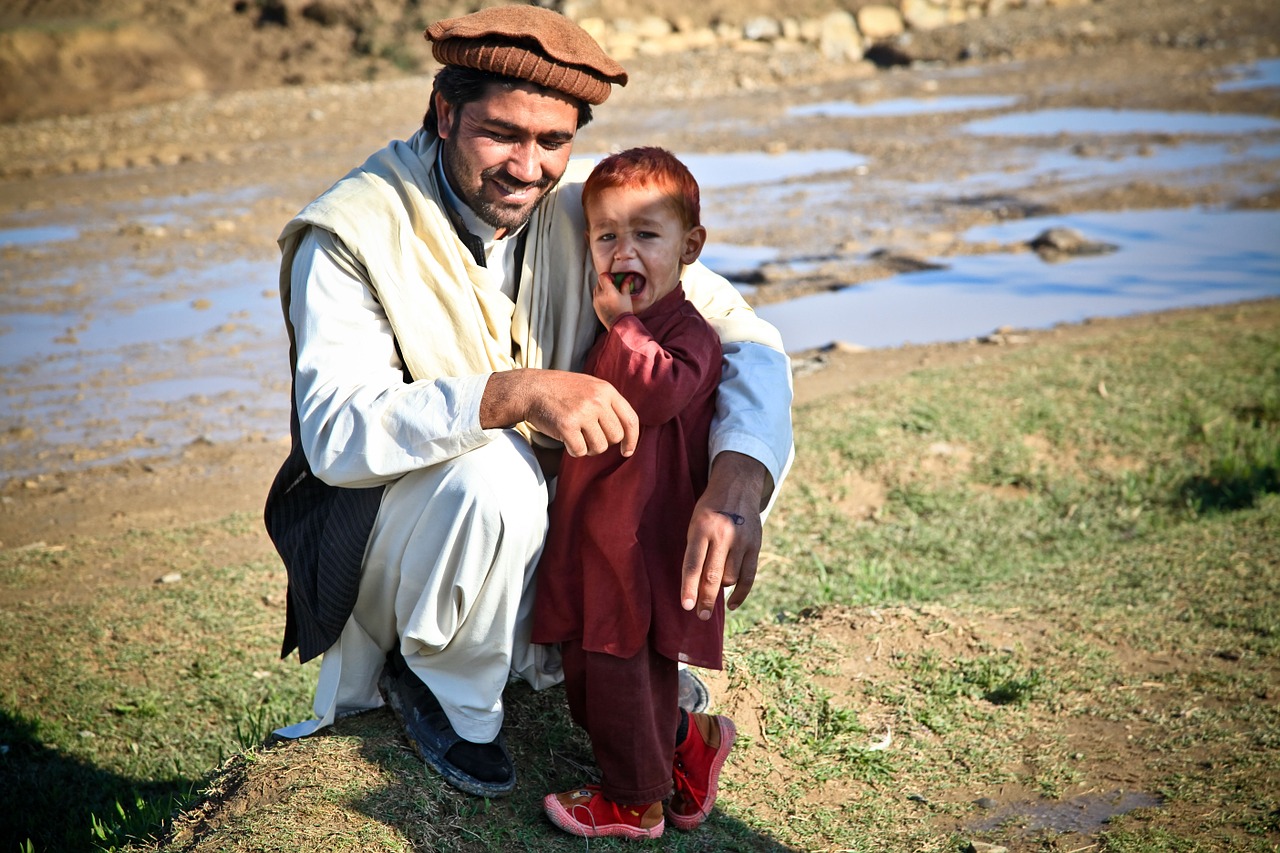 Actively involved in the reconstruction of Afghanistan since 2002, the French non-governmental organization GERES (Group for the Environment, Renewable Energy, and Solidarity) aims to protect natural resources and minimize the impact of climate change by providing sustainable energy solutions that diminish fuel poverty and improve living conditions for people in Afghanistan. GERES was founded in 1976 in response to the first oil crisis, and since that time, its teams have worked in over 30 countries on projects related to energy use, agricultural production, and sustainability.
Actively involved in the reconstruction of Afghanistan since 2002, the French non-governmental organization GERES (Group for the Environment, Renewable Energy, and Solidarity) aims to protect natural resources and minimize the impact of climate change by providing sustainable energy solutions that diminish fuel poverty and improve living conditions for people in Afghanistan. GERES was founded in 1976 in response to the first oil crisis, and since that time, its teams have worked in over 30 countries on projects related to energy use, agricultural production, and sustainability.
Headquartered in Aubagne, France, GERES maintains permanent offices in nine other countries and operates across Europe, West Africa, Central Asia, and Southeast Asia. Its staff of more than 200 team members consists of professionals qualified in over 30 diverse fields. Along with managing or assisting with the implementation of development projects, GERES teams conduct skills training, applied research, and technical consulting for public and private entities. In 2014, GERES supported nearly 3.9 million people through 58 projects in 19 countries.
Integrated Approach to Societal and Environmental Change
GERES recognizes that poverty elimination, energy production and consumption, and environmental sustainability are inextricably linked, and accordingly focuses all of its efforts on five interconnected themes:
- – energy saving and efficiency
- – clean energy production
- – climate change awareness and coping strategies
- – economic development
- – local policy and land management advocacy
Working in these fields, GERES pursues large-scale environmental, economic, and social changes that can be sustained over the long term. To do so, its teams adapt their fieldwork and the technologies they design for compatibility with the specific socio-cultural contexts in the different areas where they work. Most of the organization’s initiatives begin with an initial assessment of the local situation and rollout of a pilot project. If the project is evaluated favorably, it is brought to scale and reproduced in other locations.
Wherever GERES operates, it works in solidarity and collaboration with members of the local community and often partners with other stakeholders, whether government agencies or private businesses. It encourages local people to become involved in the development of their communities and prepares them to assume control of continuing projects. Besides disseminating knowledge and best practices, GERES transfers ownership of the innovative technologies it deploys to the communities whose use them.
Improving Energy Access and Living Conditions in Afghanistan
 The GERES team in Afghanistan comprises 46 local and 2 expatriate staff members who work out of a permanent office in Kabul and two field offices in the provinces of Bamyan and Kapisa. Drawing on well over a decade of experience in Afghanistan, GERES addresses a number of challenges related to energy efficiency and accessibility, economic opportunity, and harsh environmental conditions. Energy poverty in particular poses a significant threat to the well-being of Afghan families, as sporadic electricity supply is an ongoing problem, and energy costs can make up a large portion of an urban household’s annual expenditures.
The GERES team in Afghanistan comprises 46 local and 2 expatriate staff members who work out of a permanent office in Kabul and two field offices in the provinces of Bamyan and Kapisa. Drawing on well over a decade of experience in Afghanistan, GERES addresses a number of challenges related to energy efficiency and accessibility, economic opportunity, and harsh environmental conditions. Energy poverty in particular poses a significant threat to the well-being of Afghan families, as sporadic electricity supply is an ongoing problem, and energy costs can make up a large portion of an urban household’s annual expenditures.
Building Energy-Efficient Public Buildings
With 40% of its land at an elevation of 2,000 meters (about 6,500 feet) or more, much of Afghanistan is characterized by mountainous terrain and long, frigid winters. GERES concentrated its initial work in Afghanistan on introducing heat-conserving building design features in these high-elevation areas of the country. Here, winter temperatures inside inadequately heated and insulated buildings can drop as low as 5° C (41° F).
From 2003 to 2005, GERES erected 8 buildings for pilot testing of its energy efficiency methods. The success of these trials led to a building improvement program through which GERES and its partners completed the restoration or upgrade of 240 public buildings by 2009. Utilizing such techniques as passive solar heating, the baseline winter temperatures in these renovated buildings rose to 15°C (59° F).
Passive Solar Energy for Afghan Homes
GERES also worked to improve Afghan homes through a program that facilitated the construction of solar verandas built with affordable, locally sourced materials. Situated on the south end of a home, the wood-frame verandas use passive solar energy to absorb heat and elevate indoor temperatures to 20° C (68° F) and above. Upon the project’s culmination in 2012, GERES had outfitted 700 houses with solar verandas, allowing the more than 6,000 people living in these homes to cut by half their reliance upon expensive, carbon dioxide-emitting fuels.
A subsequent project brought these passive solar housing methods to the urban setting of Kabul, in an effort to curtail natural resource depletion and reduce living expenses for households with limited resources. GERES trained local artisans to install the solariums, and they enhanced approximately 3,000 homes with these energy-efficient additions.
Providing Farmers with Bioclimatic Crop Storage Solutions
Afghan agricultural producers in the isolated highlands must also contend with cold winters, during which they lose many of their plants to frost. A shortage of dependable fuel sources and lack of effective storage facilities leave many farmers unable to access outside markets or preserve their crops. They have little option but to sell their produce for the lower prices they fetch at harvest time.
To improve food preservation capabilities in the region, GERES operates an ongoing program to equip local farmers with bioclimatic crop storerooms. Employing natural climate-control features, GERES-designed storerooms enable producers to preserve crops like potatoes and apples through the winter without the use of mechanical equipment. This has a significant positive impact on the livelihoods of farming families, because safely stored crops can be sold for higher prices during the winter, when demand is highest.

